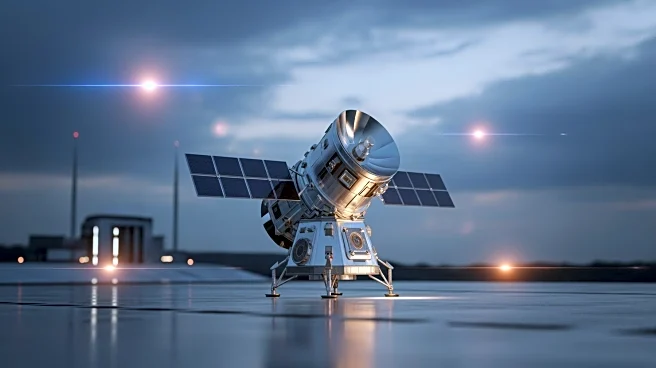What's Happening?
NASA postponed the launch of its ESCAPADE mission due to intense geomagnetic storms caused by solar activity. The launch, initially scheduled for November 12, was rescheduled for November 13, 2025. The ESCAPADE mission,
part of NASA's Small Innovative Missions for Planetary Exploration program, aims to study space weather at Mars. The mission involves twin spacecraft designed to measure the interactions between solar wind and Mars' magnetic field and atmosphere. The delay was necessary to avoid potential disruptions from solar radiation during critical mission phases.
Why It's Important?
The delay highlights the impact of space weather on satellite launches and the importance of understanding solar activity. Geomagnetic storms can disrupt communications and power grids, posing risks to technology and astronauts. The ESCAPADE mission's focus on space weather at Mars could provide valuable insights for future missions, helping to protect astronauts and equipment from radiation hazards. The mission's innovative trajectory allows launches outside typical Earth-Mars alignment windows, offering flexibility for future interplanetary missions.
What's Next?
Once launched, the ESCAPADE spacecraft will orbit near Earth before heading to Mars in 2026, with an expected arrival in 2027. The mission will begin mapping Mars' upper atmosphere and magnetic fields, contributing to scientific understanding of space weather interactions. NASA's heliophysics mission fleet will continue to study solar activity, improving predictions of major solar events and enhancing preparedness for space weather impacts.
Beyond the Headlines
The ESCAPADE mission's trajectory allows launches outside the typical Earth-Mars alignment window, offering flexibility for future missions. This approach could revolutionize how interplanetary missions are planned, reducing dependency on specific launch windows. The mission's focus on space weather interactions at Mars could also provide insights into protecting future astronauts from radiation hazards, a critical consideration for long-term human presence on Mars.










